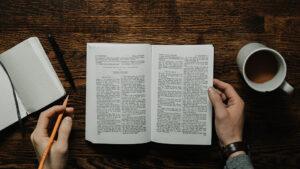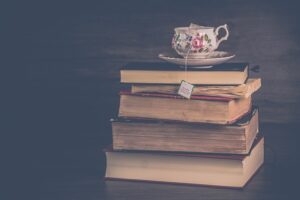Exploring the Vast Universe of Literature:
A Journey Through Genres, Novels, and Reading Habits
Introduction:
Literature is a vast universe that encompasses a myriad of genres, styles, and narratives, each offering unique experiences to its readers. From the captivating realms of fantasy to the gritty landscapes of crime fiction, literature has the power to transport us to different worlds, evoke deep emotions, and provoke thought. In this blog, we’ll embark on a journey through the diverse landscape of literature, explore various types of novels, and delve into the intricacies of reading habits.

Types of Literature:
- Fiction:
Fictional literature comprises imaginative works created by the author. Within fiction, there are numerous genres, including:
– Fantasy: Set in magical or fantastical worlds, often featuring mythical creatures and epic quests.
– Science Fiction: Explores futuristic technologies, alternative realities, and the impact of science on society.
– Historical Fiction: Set in the past, blending fictional narratives with real historical events and figures.
– Romance: Focuses on love, relationships, and emotional connections between characters.
– Mystery/Thriller: Features suspenseful plots, puzzles, and often involves crime-solving or psychological suspense.
- Non-Fiction:
Non-fiction literature deals with real-world subjects and events. It includes:
– Biography/Autobiography: Narratives of real people’s lives, either written by themselves (autobiography) or by others (biography).
– Essay: Presents the author’s viewpoint or argument on a particular topic, often exploring philosophical or social issues.
– Memoir: Personal accounts of specific events, experiences, or periods in the author’s life.
– Self-Help: Offers guidance and advice on personal development, relationships, and achieving goals.
Novels:
Novels are one of the most popular forms of literature, offering immersive storytelling experiences. They come in various shapes and sizes, catering to diverse interests and preferences. Some common types of novels include:
- Classic Novels: Timeless works of literature that have stood the test of time, such as “Pride and Prejudice” by Jane Austen or “To Kill a Mockingbird” by Harper Lee.
- Contemporary Fiction: Novels set in modern times, often exploring contemporary issues and themes relevant to today’s society.
- Young Adult (YA) Fiction: Geared towards teenage readers, YA fiction covers a wide range of genres and topics, from coming-of-age stories to dystopian adventures.
- Graphic Novels: Combines storytelling with visual art, utilizing illustrations to enhance the narrative. Graphic novels encompass a diverse range of genres and styles, appealing to readers of all ages.
- Genre Fiction: Includes specific genres like fantasy, science fiction, romance, mystery, and more, each with its own conventions, tropes, and fan base.

Reading Habits:
Reading habits vary greatly from person to person, influenced by factors such as lifestyle, preferences, and available time. Some common reading habits include:
- Regular Reading Routine: Establishing a consistent reading schedule can help cultivate a habit of reading regularly, whether it’s a few pages before bed or during lunch breaks.
- Diverse Reading: Exploring a variety of genres and authors can broaden one’s perspective and enrich the reading experience.
- Setting Goals: Setting reading goals, such as a certain number of books to read in a month or exploring a new genre, can provide motivation and structure.
- Discussion and Reflection: Engaging in book clubs, online forums, or discussions with friends allows readers to share their thoughts, gain insights, and discover new perspectives.
- Balanced Media Consumption: While reading is a valuable habit, it’s essential to balance it with other forms of media consumption, such as movies, podcasts, and social interactions.
Conclusion:
In conclusion, literature encompasses a rich tapestry of genres, novels, and reading habits, offering something for every reader. Whether you’re drawn to the imaginative realms of fiction or the thought-provoking insights of non-fiction, there’s a vast array of literary treasures waiting to be explored. By cultivating diverse reading habits and embracing the power of storytelling, we can embark on transformative journeys of imagination, empathy, and self-discovery through the pages of a book.
Latest Post
-
 Personalizing Your Space: How to Create a Productive Reading Nook24 Jul 2024
Personalizing Your Space: How to Create a Productive Reading Nook24 Jul 2024 -
 The Science Behind Ambiance at Deepa’s Reading Room: Enhancing Reading Efficiency through Environment18 Jul 2024
The Science Behind Ambiance at Deepa’s Reading Room: Enhancing Reading Efficiency through Environment18 Jul 2024 -
 The Digital Age vs Traditional Reading Spaces:Deepa's Perspective12 Jul 2024
The Digital Age vs Traditional Reading Spaces:Deepa's Perspective12 Jul 2024 -
 Unwind, Unplug, and Unleash: The Rebirth of Reading Rooms as Self-Care Sanctuaries26 Jun 2024
Unwind, Unplug, and Unleash: The Rebirth of Reading Rooms as Self-Care Sanctuaries26 Jun 2024 -
 Leadership and learning are indispensable to each other19 Jun 2024
Leadership and learning are indispensable to each other19 Jun 2024
Book your seat now
Book your seat now and indulge in an environment tailored for academic excellence. Your study oasis awaits – reserve your spot today!


